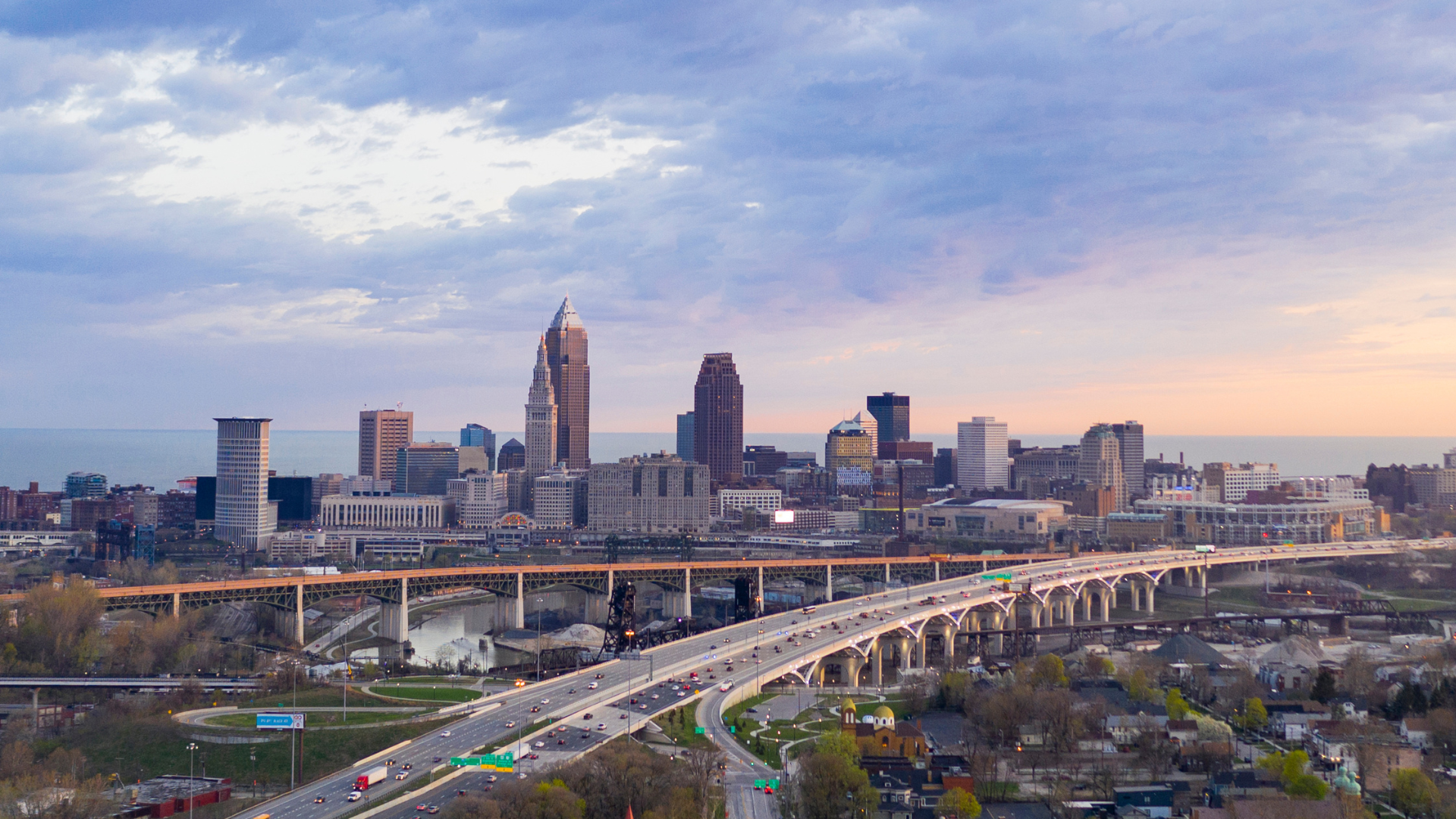
Cleveland_skyline
The Western Reserve Land Conservancy (WRLC) is pleased to announce the approval of a $2.4 million grant from the United States Department of Health and Human Services, Office of the Assistant Secretary for Health, Office of Child Health. This four-year grant will support the partnership’s core project, “Restoring Health Equity and Resilience to Cleveland through Sustainable Land Improvements.”
The project, developed in collaboration with population health researchers from The MetroHealth System and the Cleveland Clinic, is aimed at four areas of Cleveland: Buckeye-Woodhill, Hough, St. Clair-Superior, and Glenville. These communities, affected by a history of environmental and social deprivation, will benefit from comprehensive strategies aimed at improving Social Health Recommendations (SDOH).
The initiative will focus on clearing and cultivating vacant land in these areas to address environmental injustices such as widespread deforestation, low tree cover, and poor ventilation. By improving the neighborhood environment and fostering stronger community and community relationships, the project aims to improve cardiovascular health outcomes for residents. Cleveland Neighborhood Progress will help the project team, manage content and its network of community development organizations in targeted areas to mobilize green development of vacant land.
This initiative is aligned with the two Leading Health Indicators (LHIs) identified in Healthy People 2030:
- Increasing the percentage of adults who meet current guidelines for physical activity and muscle-strengthening exercise.
- Reducing the number of adults with high blood pressure by helping them control their blood pressure.
Selected Areas of SDOH:
- Neighborhoods and the Built Environment: Promoting health and safety by improving air and water quality and reducing violent crime in target communities.
- Social and Community Status: Strengthening social networks and social support to promote good behavior and protect citizens from discrimination and marginalization.
Impact and Vision: This project seeks to generate immediate and long-term health benefits. Clean air, lower temperatures, and reducing the burden of chronic diseases are some of the expected immediate results. Over time, this project will generate data and actionable data, to provide a similar model for other cities facing similar challenges and ethnic health, the effects of climate change. sky and population loss.
“The Western Reserve Land Conservancy is committed to transforming Cleveland’s neighborhoods into healthy, climate-resilient communities,” said Isaac Robb, Vice President of Planning, Research, & Urban Projects at WRLC and Researcher Project manager. “This grant enables us to deepen our work in partnership with local partners and citizens, directly addressing the environmental and social divides that have long affected these areas.”
“A core part of MetroHealth’s project and centers vision is to promote healthy communities through discovery and innovation,” said MetroHealth researcher Kristen Berg, PhD, who is collaborating on the project with Adam Perzynski, PhD, researcher member of MetroHealth’s Population Health and Equity Research Institute. . Both are also on the faculty of Case Western Reserve University School of Medicine. “A thriving and thriving green space is an important indicator of a healthy community, and our new partnership with the Western Reserve Land Conservancy and the Cleveland Clinic allows us to focus on the built environment as a powerful tool for to promote health equity.”
“We are excited to join this unique and impactful project in partnership with WRLC,” said Jarrod Dalton, Ph.D., Director of Cleveland Clinic’s Center for Populations Health Research and Cleveland Clinic Lerner Assistant Professor of Medicine. College of Medicine of Case Western. Reserve University. “Collaborative efforts from different sectors are essential to improving health in neighborhoods. In addition to helping address Cleveland’s sprawling urban sprawl, this project is innovative from a health research perspective.” community. We are proud to participate in this important project.”
Tania Menesse, President and CEO of Cleveland Neighborhood Progress, said: “This green space investment will benefit the residents of these historic neighborhoods as well as the revitalization efforts already underway on Cleveland’s east side. . “Increasing tree cover and green spaces for residents to enjoy will help address long-standing inequities in the eastern suburbs.”
“Race is not only a social or moral issue but also an important public health issue,” said Matt Zone, Vice President and Director of the Thriving Communities program at Western Reserve Land Conservancy. “Investing in urban areas is investing in a better and brighter future for everyone.”
#MetroHealth #partners #Cleveland #Clinic #Western #Reserve #National #Park #Advance #Health #Equity